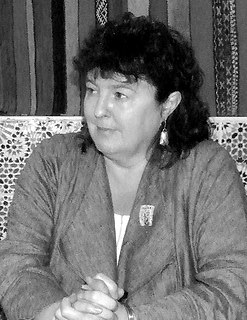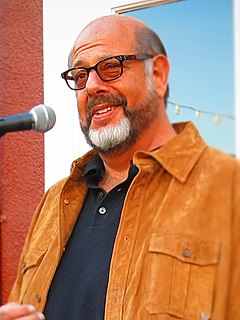A Quote by Alice McDermott
I believed in fictional characters as if they were a part of real life. Poetry was important, too. My parents had memorized poems from their days attending school in New York City and loved reciting them. We all enjoyed listening to these poems and to music as well.
Related Quotes
I work with a lot of young people who have poems that are changing their lives, that they're eager to talk about, but every now and then when I meet someone, maybe someone of my parents' generation, and I tell them that I write poetry, they'll begin to recite something that they memorized when they were in school that has never left them.
I grew up in a bookless house - my parents didn't read poetry, so if I hadn't had the chance to experience it at school I'd never have experienced it. But I loved English, and I was very lucky in that I had inspirational English teachers, Miss Scriven and Mr. Walker, and they liked us to learn poems by heart, which I found I loved doing.
[Kenneth Koch] taught children in public schools in New York City to write poems and told them down worry about rhyming, don't worry about any of that stuff. You know, write a poem where you mention three colors and make it five lines - or he would just give them, you know, little strategies. And, man, they wrote some great poems.
But Carroll's were more convoluted, and they struck me as funny in a new way: 1) Babies are illogical. 2) Nobody is despised who can manage a crocodile. 3) Illogical persons are despised. Therefore, babies cannot manage crocodiles. And: 1) No interesting poems are unpopular among people of real taste. 2) No modern poetry is free from affectation. 3) All of your poems are on the subject of soap bubbles. 4) No affected poetry is popular among people of taste. 5) Only a modern poem would be on the subject of soap bubbles. Therefore, all your poems are uninteresting.
If I'm still wistful about On the Road, I look on the rest of the Kerouac oeuvre--the poems, the poems!--in horror. Read Satori in Paris lately? But if I had never read Jack Kerouac's horrendous poems, I never would have had the guts to write horrendous poems myself. I never would have signed up for Mrs. Safford's poetry class the spring of junior year, which led me to poetry readings, which introduced me to bad red wine, and after that it's all just one big blurry condemned path to journalism and San Francisco.
I was always around people who were in the business from the time I was an absolute baby. I grew up in New York City, and my parents, my sister, and I had a house on Fire Island, and they were part of a set of people that were all close and friendly, most of whom were involved in show business in one regard or another. So it was always familiar to me, and I kind of enjoyed it.
It's true, there aren't many explicit references to Canada in my book. And not many explicit references to the U.S., either. I try to fill my poems with enough real, observed detail that the poems create a believable world - but I don't write poems for the sake of telling my own story. My life is not important or interesting enough to warrant that kind of documentary. Instead I try to use my experience as a way of understanding situations that are common to many people. I want readers to project their own lives onto my poems.
I do believe that one's writing life needs to be kept separate from Po-Biz. Personally, I deal with this by not attending too many poetry readings, primarily reading dead poets or poems in translation, reading Poets & Writers only once for grant/contest information before I quickly dispose of it, and not reading Poetry Daily. Ever.






































